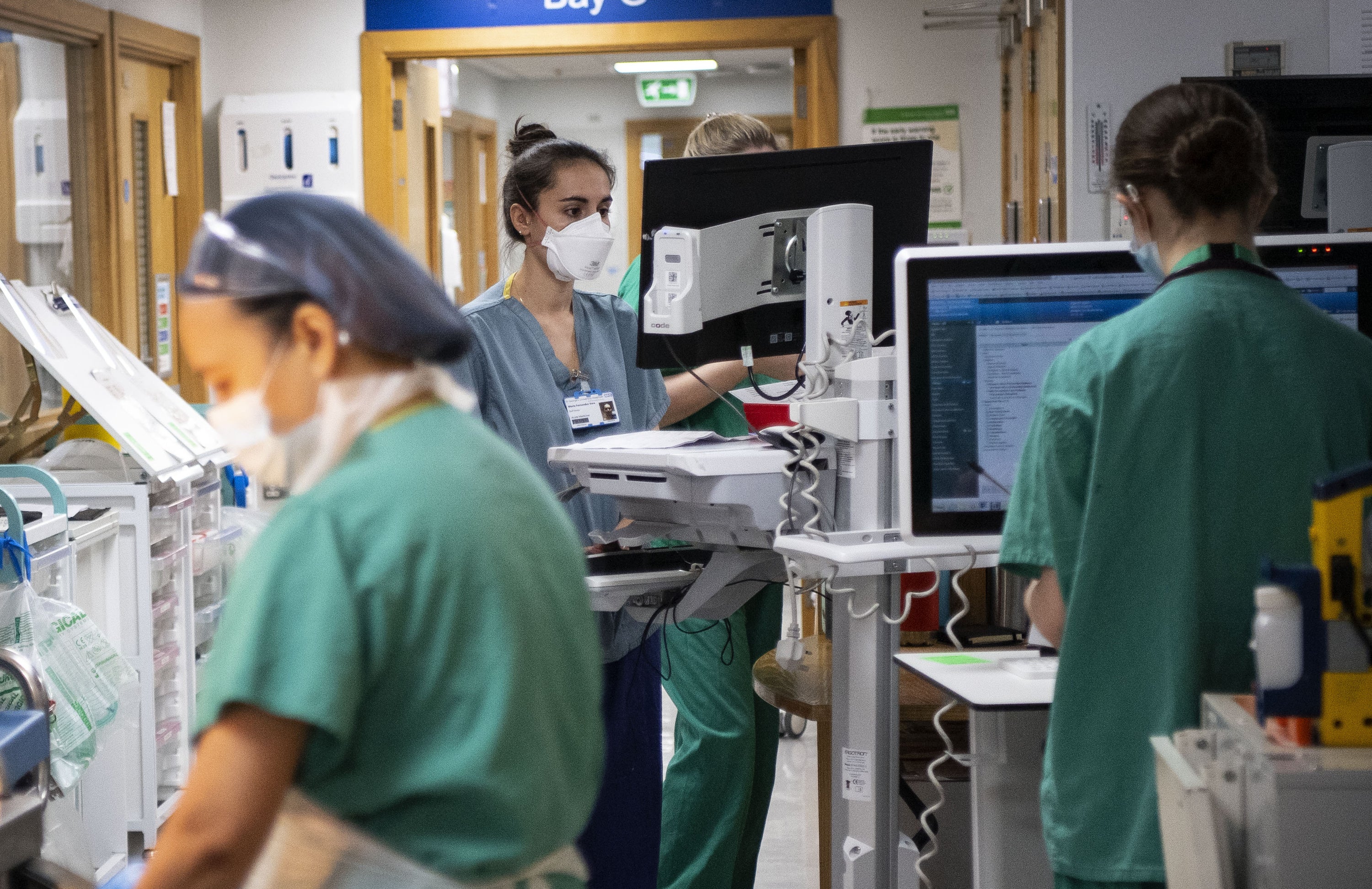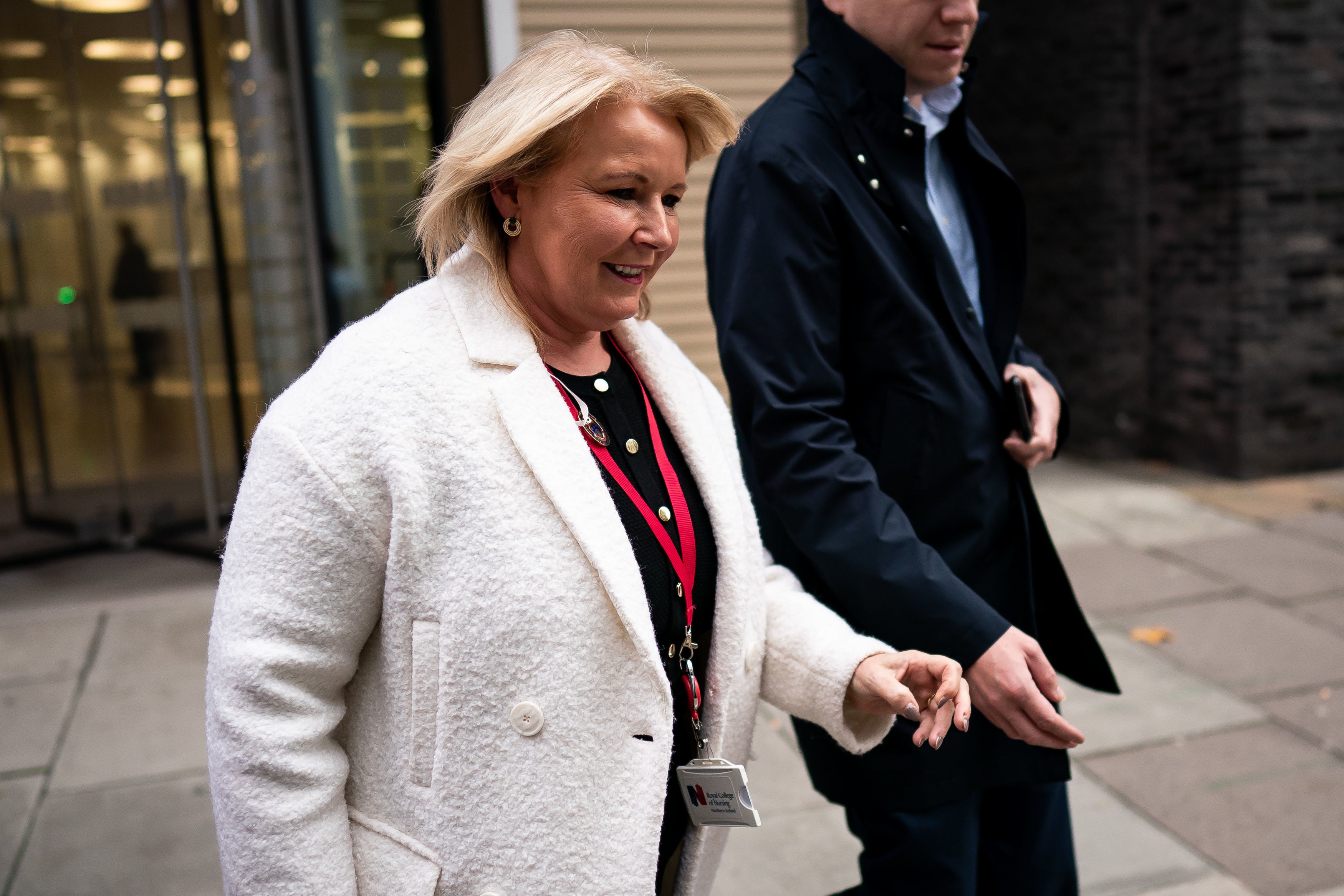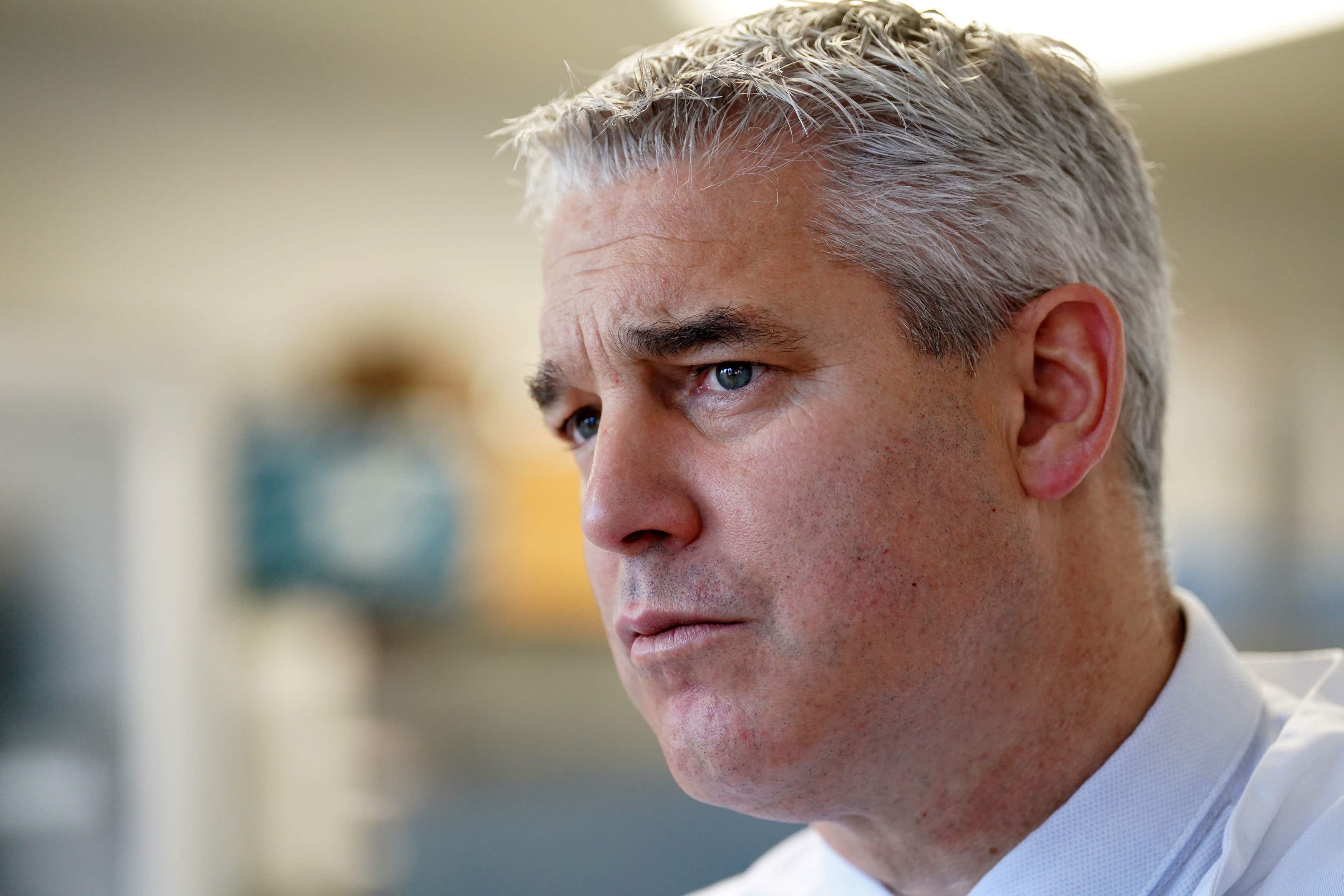Up to 100,000 nurses to go on strike before Christmas amid warning over urgent operations
‘NHS is facing what may be its hardest ever winter, amid severe staff shortages’ NHS Providers warn
Patients face having urgent operations cancelled in 56 trusts across England, Wales and Northern Ireland as up to 100,000 nurses go on strike before Christmas.
The Royal College of Nursing (RCN) confirmed the scale of the walkouts on Tuesday as NHS trusts grapple over which services they can maintain.
NHS leaders have urged the government to avert the strikes as life-sustaining care has not been exempt from action, and patients could face cancellations at short notice.
The walkouts are due to take place on Thursday 15 and Tuesday 20 December.
Across England, nursing staff in 44 out of 219 NHS trusts are set to strike, while in Wales staff in six out of seven health boards and all six trusts in Northern Ireland will face strikes. Industrial action in Scotland was put on pause after the Scottish parliament opened negotiations with the RCN.
Is your care or surgery set to be impacted by strikes next week? email rebecca.thomas@independent.co.uk
NHS England has written to hospitals confirming services such as emergency care, maternity or time-critical transplants would have at least a bank holiday level of staffing agreed with the union nationally.
However, NHS England would need to negotiate locally to maintain staffing levels for priority one and two surgeries, which are the most urgent – meaning these patients could see their operations postponed.
Priority one surgeries include emergency operations, and priority two is care that must be given within a month.

“Life-sustaining therapies” such as kidney dialysis will also need to be negotiated for as well as inpatient mental health and crisis care services.
The RCN’s list of trusts affected by action shows South West will be impacted most.
The body would not confirm exactly how many staff in each trust had voted for strike action, however, workers have until the day of the strike to decide whether they not work and will join the industrial action.
Earlier this week, NHS chief executive Amanda Pritchard said trusts would need to be “agile” about confirming operation cancellations.

Interim chief executive of NHS Providers, Saffron Cordery, said: “Trust leaders have planned for industrial action but want the government and nurses’ leaders to talk urgently to find a solution that will avert strikes.
“The RCN has been clear about the potential to escalate action in January if talks don’t take place, so engagement is really important.
“Everybody wants to avoid prolonged industrial action. We understand how strongly nurses feel and why it has come to this but the NHS is facing what may be its hardest-ever winter, amid severe staff shortages and ever-increasing demand for services.
“Trusts affected will do everything they can to minimise disruption for patients. Their priorities remain to ensure the safe delivery of care and supporting the wellbeing of staff.”

The union is calling for a pay increase of at least 5 per cent above inflation to address a 20 per cent pay cut for nurses in the last decade.
Health secretary Steve Barclay has repeatedly pushed back on nurses’ calls for increased pay and claims demands from the RCN are “unreasonable”.
RCN general secretary and chief executive Pat Cullen said: “Ministers have declined my offer of formal pay negotiations and instead chosen strike action.
“It has left us with no choice but to announce where our members will be going on strike in December.
“Nursing is standing up for the profession and their patients. We’ve had enough of being taken for granted and being unable to provide the care patients deserve.
“Ministers still have the power and the means to stop this by opening negotiations that address our dispute.”
Join our commenting forum
Join thought-provoking conversations, follow other Independent readers and see their replies
Comments


Bookmark popover
Removed from bookmarks